|
ORCA develops long term research programs in Peru that are intertwined with the current status of our planet through the health assesssment of key marine species like cetateans, pinnipeds, marine otters, sea-turtles and penguins. Our programs are closely linked together under hte ONE HEALTH concept, connecting animal health, public health and environmental health.
SCIENTIFIC PUBLICATIONS
Our programs range from monitoring health of individual marine mammals to the ecology of their populations, to registration of strandings, medical assessment of live cases, clinical research, forensic medicine and investigation, and both behavior and distribution studies on the species that thrive in the Peuvian South Pacific.
LONG-TERM
SCIENTIFIC PROGRAMS
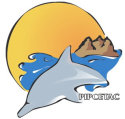 |
PIPCETAC: Inshore Cetacean Population Research Program
Since 2000. This program is directed to develop continuous research on behavior, identification and distribution of dolphins, whales and porpoises from the populations located in the inshore waters of Peru. Little is known about local populations of these species, but it is well known that pollution, fisheries and human interaction are the main cause of cetacean strandings. Through this long-term study, we are able to determine their present location and current situation within the Peruvian coast. It is now in its third stage. |
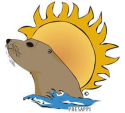 |
PRESAPPI: Pinniped Population and Health Assessment Program
Since 2000. This program is aimed at monitoring local pinniped populations, assessing the fluctuation of resident sea-lion communities. Sea-lions and fur seals populations that live in the Peruvian coast have diminished dramatically after every “El Niño” event, and local populations are currently endangered due to illegal slaughtering, fisheries and pollution. Sea-lions keep the balance in the local ecosystem and are beneficial to the presence of fish species in the Peruvian coast. Through this program we intend to have a real vision of the situation of sea-lions in Peru, its relation to human coastal communities and to promote their conservation and importance for the ocean’s health. |
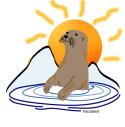 |
PINUMAR: Marine Otter Research Program
Since 2003. The marine otter (Lontra felina) is one of the most endangered marine mammals worldwide. Little is know about its distribution, behavior and the physio-pathology of the diseases affecting them. Also, systematic theories are still being developed. There are four populations in the eastern south Pacific coast: Three well documented populations in Chile, and one, less studied, in Peru. This Program is aimed at registering and identifying local individuals, families and their distribution within the Peruvian population by assessing the locations where the animals are sighted, appear stranded or engage with human interations, determining the effects of local threats. Data collected is a contribution to learn about the species ecology, behavior and other unknown aspects of their natural habitat. |
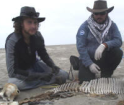 |
OSTEOLAB: Marine Osteology Research Program
Since 2001.To develop research on anatomy and pathologies of bone structures of subject species of sea-lions, fur seals, cetaceans, marine otters, sea turtles, and penguins that we work with. It is part of this program to collect and identify specifical characteristics of hard samples from strandings in order to understand and clasify common osteopathology cases. It is also part of this program to identify different species, subspecies or taxa in local resident or transient populations. |
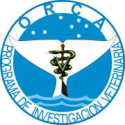 |
VETERIMAR: Marine Veterinary Diagnose Research Program
Since 2001. This program seeks to monitor health of resident populations that inhabit the South Pacific to provide medical attention to stranded animals, as scientific advances are developed for a wider outlook on marine mammal conservation in the wild. Every case is important, so that others may live. We conduct different studies on veterinary sciences like pathology, parasitology and microbiology are under continuous development, to improve our knowledge about marine mammal diseases, zoonotic diseases, metabolic syndroms and degenerative diseases as a way to assess the present conditions of our ocean’s health through the health of these species. Marine mammals, penguins and sea turtles are the Sentinels of the Ocean´s Health. |
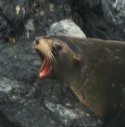 |
ETHOSEA: Marine Ethology, Acoustic & Cognition Research Program
Since 2007. Focus mainly in Pinnipeds and Cetaceans, this program recognizes the ethological, acoustical and cognitive development of marine mammal species. This program aims to identify ethological patterns and to identify psico-ethological symdromes, as well as to recognize acoustic signals of marine mammal species, to use ethological and acoustic variables and enhance psychological and physical rehabilitation. This program recognizes the development of cognition and acoustic response as critical for marine mammals under rehabilitation, and that of acoustic disruptors affecting their behavior and distribution in the wild. |
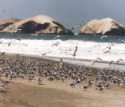 |
ECOSHORE: Coastal Marine Ecology Research Program
Since 2012. This program monitores changes in the marine environment studying marine live and stranded specimens within the coastal and intertidal areas along the Peruvian coast. The program recognizes human impact upon vertebrate species and the changes associated to the under and upper links of the marine ecosystem chain. This is possible through the assessment of species abundance and their relations with strandings and ecology, connecting their interactions with the cumulative effects of human impact upon the marine environment that range from marine debris and pollution to the consequences of a progressively violent climate changes.
|
ORCA
"Rescue, Education, Science and
Conservation
Saving Marine Life in
the Eastern South Pacific"
OCEANIZE YOUR LIFE!
|























